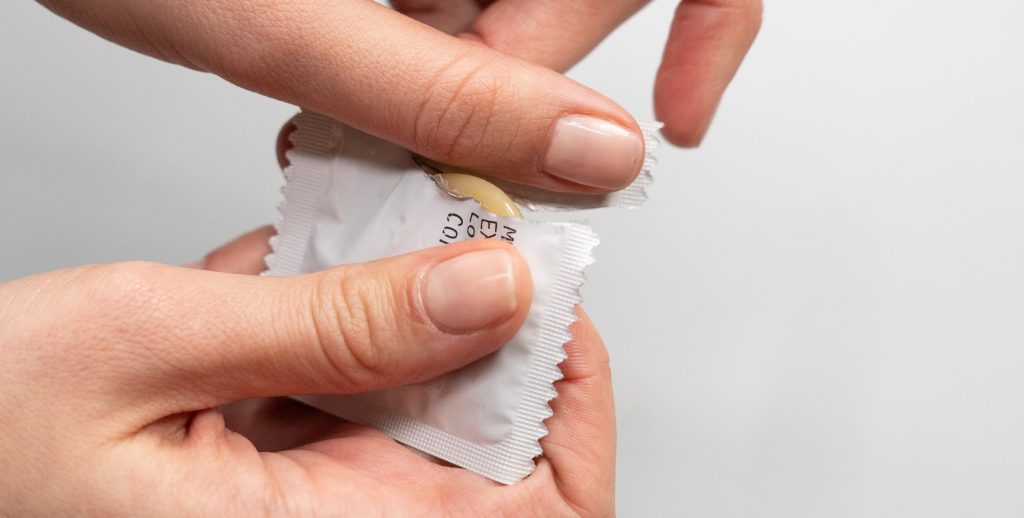Why are young people no longer using condoms?
Young people have always had a lot of sex. For decades, public health campaigns tried to urge younger people to protect against unwanted pregnancies and sexually transmitted infections by encouraging regular testing and consistent condom use.

Are you worried about STIs. Don’t leave your sexual health to chance.
But times are changing.
Younger people are having less sex. This phenomenon is complex and driven by a range of forces, including increasing social atomisation and isolation, reliance on digital technology to form relationships, changing attitudes and fears around sex and consent, focus on career and educational development, and fears of unwanted pregnancy.
So, you’d think that a generation stricken with fear about the consequences of sex would be more likely to use contraception. But this isn’t the case.
New research has found that consistent condom use is down among teens and young adults in the US and Canada.
Surveys of sexually active high schoolers conducted by the CDC found that condom use was down about 7%. Young women have increasingly turned to birth control pills, morning-after pills, and IUDs to prevent pregnancy. Men who have sex with men are also using condoms less often as fears of HIV have also fallen.
This isn’t all bad news. In the US, rates of STIs decreased among 18-24 year-olds, and teen births also reached record lows in 2023.
However, decreased condom use is concerning. And it’s not just a phenomenon in North America.
The UK has seen a sharp rise in the number of Chlamydia, Gonorrhoea, and Syphilis cases among people aged 15-24. Moreover, the WHO Regional Office for Europe recently released a report highlighting the sharp decline in condom use among adolescents and the high rate of sexual intercourse that takes place without contraception of any kind.
Why is this happening?
The reasons for this decreased use of condoms are multi-faceted and complex. Here are a few reasons why younger people are using condoms less often.
HIV and AIDS are now uncommon
These days, there is little to no perceived risk of getting infected with HIV. The fear of dying from AIDS, a fear lived by many in previous decades, has large evaporated. Most other STIs are seen as having a “quick fix” with medication.
Economic inequality
The WHO Regional Office for Europe reports that condom use correlates with socioeconomic status. Adolescents from low-affluence families were more likely to report not using a condom or the contraceptive pill at their last sexual intercourse than their peers from affluent families (33% compared to 25%).
Sex education
Sex education remains a major hurdle to imparting safe sex practices to young people.
In the US, there are no federal standards for sex education, leaving it up to state governments to decide what is taught. In states like Mississippi, condom demonstrations are banned. Many conservative groups and advocates believe that teaching abstinence until marriage should be the focus of sex education rather than teaching children how to have sex safely.
The WHO report also highlights the need for higher quality sex education and improved access. More countries need to do more to help young people access useful information, safe spaces to talk about sexuality and consent, and life skills that will help young people navigate choices around sex that could affect the rest of their lives.
Better2Know’s consultant doctor in Spain, Dr. Steve Chapman, often remarks how sex education in the country is almost non-existent.
Access to reproductive health
In the US, access to abortion has become more limited since the overturn of Roe v. Wade in 2022. Fears about not being able to access these services in some parts of the country may lead some women to forego sex altogether.
Drugs that prevent sexually transmitted infections
Strides have been made in recent years to offer medicines that will help prevent and cure STIs.
Most STIs can be cured with medication, and others can be managed with treatment. Breakthroughs with medications like PEP (for HIV), DoxyPEP (for broader STI protection), and the morning-after pill may have fostered a false sense of security among sexually active individuals that any risks related to unprotected sex can be easily resolved.
Social pressure
Many young people forego condoms because they may make the sexual act less pleasurable. It’s common for men to insist against condoms during sex, leading to an increased risk for both parties for unwanted pregnancies and STIs.
Pornography
Exposure to pornography occurs at a very early age for many young people, largely through easy access to smartphones. Because of the ubiquity of pornography on the internet, sex may be perceived as being more exciting if condoms are not used, as is common in many forms of the genre.
Why you should use condoms
While this trend is indeed concerning, it’s nothing that can’t be reversed. Here are several reasons why condoms are still vital parts of anyone’s sexual health strategy.
They help prevent STIs
The best way to not get an STI is to stay abstinent. The next best way is to use condoms.
Condoms create a physical barrier between the genitals of both participants and their mucus membranes, preventing pathogens from being passed on.
Using a condom during sexual intercourse isn’t a guarantee that you won’t get an STI, but it’s the next best thing. Several studies have shown that, when used correctly and consistently, condoms provide around 90% protection for infections like HIV, Chlamydia, Gonorrhoea, and Hepatitis B.
Prevent pregnancy
When used correctly and consistently, male condoms prevent unwanted pregnancies 98% of the time.
Final thoughts
If you’re a sexually active person and you’re concerned about the possibility of contracting STIs, you should use condoms consistently.
But if you think you may have been exposed to an STI, even if you did or didn’t use a condom, you should get tested for STIs.
Book an appointment at a sexual health clinic near you by clicking the button below. You can also get tested at home with one of Better2Know’s reliable Home Test Kits.

Don’t leave your sexual health to chance. Get tested today with Better2Know.
This article has been medically reviewed by Dr. Steve Chapman, 03/12/2024.
Categories
- Awards
- Bacterial Vaginosis
- Blood Tests
- Cardiovascular Health
- Cervical Cancer
- Chlamydia
- Condoms
- Covid-19
- Gardnerella
- Genital Warts
- Gonorrhoea
- Health and Wellness
- Hepatitis A
- Hepatitis B
- Hepatitis C
- Herpes
- HIV
- HIV (AIDS)
- Home Testing
- HPV
- Instant Testing
- MSM
- Mycoplasma
- News
- Non-Specific Urethritis
- PAP Smear
- Pre-Pregnancy
- Sexual Health
- STD Symptoms
- STD Tests and Screens
- STI Transmission
- Stigma
- STIs
- Swab Tests
- Syphilis
- Trichomonas
- Ureaplasma
- WSW
- Zika




